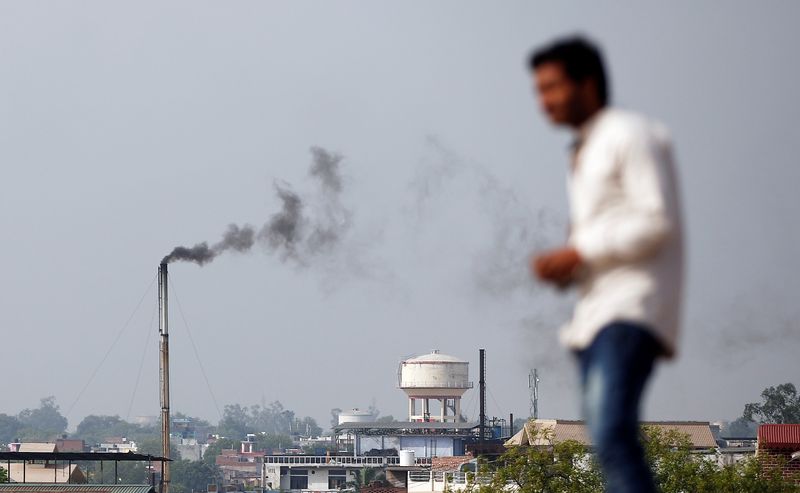By Anant Chandak
BENGALURU (Reuters) - India's factory growth dipped to a three-month low in September due to a moderation in demand and output, despite easing inflationary pressures and strong business confidence, a private survey showed.
The Manufacturing Purchasing Managers' Index, compiled by S&P Global (NYSE:SPGI), fell to 55.1 in September from 56.2 in August, below the 55.8 predicted by economists in a Reuters poll. The pace of growth was still solid, however, and was above the 50-mark separating growth from contraction for a 15th straight month.
"The Indian manufacturing industry remains in good shape, despite considerable global headwinds and recession fears elsewhere," said Pollyanna De Lima, economics associate director at S&P Global Market Intelligence.
"There were softer, but substantial, increases in new orders and production in September, with some leading indicators suggesting that output looks set to expand further at least in the short-term."
Input costs rose at the slowest pace since October 2020 and most firms reported no change in purchasing prices.
But a separate Reuters poll showed inflation wouldn't fall to within the Reserve Bank of India's (RBI) target band of 2-6% until the first quarter next year. Consumer price inflation accelerated to 7.00% in August, driven by a surge in food prices and snapping a three-month downward trend.
Optimism about future output was at the highest level in seven and a half years and international demand was the strongest since May, led by robust external demand for goods amid a weak Indian rupee.
"Currency risks and the impact of a weaker rupee on inflation and interest rates could derail optimism during October," added De Lima.

The RBI has been selling dollars to stem the currency depreciation and raised rates by 190 basis points since May, including Friday's 50 basis points hike, yet it has not been very successful in arresting the fall.
But forex reserves are being depleted and were seen falling to $523 billion by the end of this year from a high of $642 billion in October 2021.